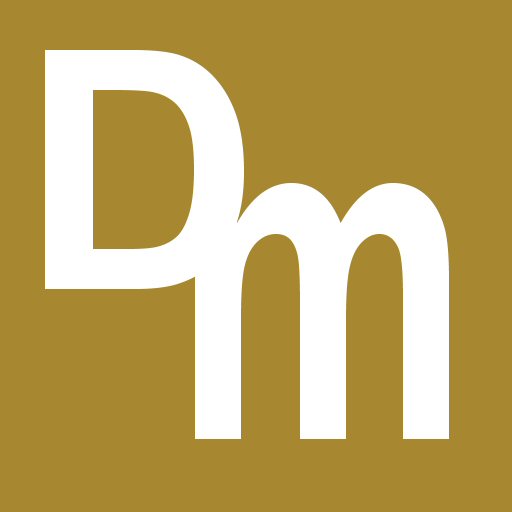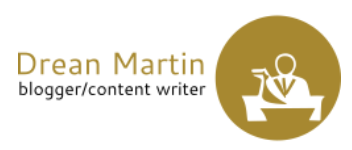Pay yourself first, but by all means, pay off your debt also. I advocate both, and here’s why. If you only do one, you fall victim to the other. Your savings account suffers if you focus on paying off your debt. Don’t pay off your debt; you financially bury yourself. It would be best if you did both of them proficiently.
We all fall victim to debt, and it can be overwhelming. The state of the economy, with its high unemployment rate and rising cost of living, can leave even the most responsible person feeling like there is no escape from debt. Even if you are in a position to make payments, it can be hard to stay on top of them without extra resources.
Everywhere you turn, every commercial on the television or radio and every advertisement that spams your internet presence on social media, websites, and even your email bombard you with products and services you’re made to believe will improve your life.
Most of the time, we don’t need and/or can’t afford these products and services. The debt they create only adds more weight to an already burdened situation.
I don’t claim to have the solution or be an authority. I’m just sharing my thoughts and my experiences.
I know everything feels like doom and gloom when the impact of the state of the economy hits you financially, and then the forecast of a recession is still right for late 2023 or early 2024. It looks like dark skies up above, at least for a while.
I’m still an optimist. I see the glass as half full and look for opportunities. I want to pay off my debt and save money.
First, I want to evaluate the different types of debt and see if there’s a way to save money.
Let’s take a look.
There are different types of debts. Here are a few examples:
- Credit Card Debt: This type of debt is usually the most discussed and most common form of debt because it is so easy to incur. Credit cards are convenient ways to pay for purchases but can quickly lead to financial trouble if you don’t keep up with payments or use them often.
- Personal Loans: If you’ve taken out a personal loan, such as for purchasing a car or home improvement project, you are familiar with this type of debt. It can be challenging to pay off these loans due to high interest rates and long-term payment plans.
- Student Loan Debt: It is the second most common type of debt, and with college tuition prices continuing to rise, it can be expensive and long-term.
- Medical Debt: Medical bills are another significant source of debt and often come as a surprise due to unforeseen illnesses or accidents. Unfortunately, this type of debt can accumulate quickly and leave you with hefty payments.
In most cases, student loans and medical debt can’t be avoided. However, we have more control over credit card debt and personal loans. When it comes to credit cards, you should think twice before buying something.
- Is it a necessity?
- Can I wait to buy it?
- Do I have the money saved to pay it off in full?
I want to focus on these two types of debt (credit card debt and personal loans) because they are in our circle of control.
Okay, you have credit cards. Now what? They’re more to it than using them and paying the bill. You have options.
Credit cards – even though they have high rates, some out there offer attractive packages like:
- No interest for the first six months
- Low-interest rates and cashback rewards
- 0% balance transfers
Personal loans – You can’t avoid them, but you have options. For example, the interest rate on loans from a credit union may be lower than on loans from a bank. You’ll still need to:
- Shop around for the best rates
- Make sure you understand all of the terms and conditions
- Find out what kind of fees you may be charged
- Choose a Financial Institution
Check out my blog post on using credit unions as a Savings Hack.
Yes. We must pay off our debt, but saving money is equally important.
I have always been intrigued by the motto, “Pay yourself first”. It doesn’t matter the amount. It all adds up. Whether it’s a few cents or a few dollars, start putting something away every payday. Create a good habit.
The origin of the phrase “pay yourself first” is not entirely clear. However, it has been popularized in many personal finance books and resources. One of the earliest references can be traced back to George S. Clason’s 1926 book The Richest Man in Babylon, where he advises, “Start thy purse to fattening.” This principle aligns closely with the concept of paying yourself first. You should keep part of everything you earn.
The idea behind it is pretty simple – dedicate a certain amount of your income to yourself before spending it on anything else. You should save or invest the money for future use and/or emergencies. Paying yourself isn’t about how much you can save. It’s about creating good financial habits. It doesn’t matter if it’s 10% or 50%; set aside some money and be disciplined about it. Over time, this will help you build up your savings, pay down debt faster, and have the ability to take advantage of other opportunities that come your way.
Now that you know saving money is equally important as paying off debt, let me share a bright spot. According to Yahoo! Finance, savings interest rates appear to be higher as of September 2023. The national average yield for savings accounts is around 0.56% APY, but several institutions offer significantly higher interest rates. For instance, some online banks and credit unions have been noted to offer rates exceeding 5% APY. This tells me there’s an opportunity and another advantage of having a savings account.
Doesn’t that sound like great news? Here are my thoughts. Let’s explore the different savings accounts and then look at financial institutions. Last but not least. Put it all together. This will lead us up the road to a more secure future. It’s never too late. You have to educate yourself, know what to do, be diligent, and, most of all, be patient.
There are many types of savings accounts:
- Traditional savings account – This is the most common savings account offered by banks and credit unions. It pays interest, but usually at lower rates than other savings accounts. Credit Unions and some online banking only have higher interest rates than brick-and-mortar banks.
- High-yield savings account – This type of savings account pays a higher interest rate, making it an attractive option for savers looking to build their savings quickly and earn more on their deposits.
- Money Market Accounts – This type of account pays a higher interest rate than a traditional savings account, but usually with restrictions on the number of transactions you can make monthly.
- Certificate of Deposits (CDs) – CDs are FDIC-insured investments that offer fixed rates of return for a specified period. These accounts are ideal for savers who don’t need immediate access to their funds and want to earn more interest on their deposits.
Whatever type of account you choose, the key is to set aside money regularly and keep it there until you need it. And remember, paying yourself first isn’t just about saving money; it’s about creating a sound financial habit. That way, when it comes time to pay off your debt or make a purchase, you’ll be able to afford it.
Different financial institutions offer some or all of the aforementioned savings accounts. There are:
- Banks
- Credit Unions
- Online Savings Accounts
- Mutual Funds
- Financial Advisors
Do your research and find the right financial institution to suit your specific needs and goals. Don’t rely on the big banks or what looks good on paper because you never know what hidden fees or other fine print may lurk in the contract.
Finally, many resources and strategies are available that can help manage and pay down debt. Here are a few of my favorites:
- National Foundation for Credit Counseling (NFCC): NFCC provides free online credit counseling to help you create a budget, manage your debt, and understand your credit score.
- Debt Snowball: With the debt snowball method, you pay off your smallest debts first while making minimum payments on your more significant debts. This method can help you get out of debt faster and save money.
- Debt Avalanche: This approach prioritizes your debts from the highest interest rate to the lowest. It’s a great way to save money over time because you first eliminate debt with the most costly interest rates.
- Balance Transfer: This option allows you to move a balance from one credit card to another with a lower interest rate.
- Zero Percent Interest: A zero percent interest rate credit card can help you pay off debt faster if you qualify.
So, take some time and think about what goals you want to achieve financially. Whether paying down debt or saving for retirement, set aside some monthly money and stick with it. It’s a start, even $20 weekly or $100 monthly. Remember, there’s no better time to begin than now. Start paying yourself first and take control of your financial future! Keep in mind that small steps lead to significant changes over time. So don’t wait another day. Start today by dedicating some income towards yourself and building good financial habits for a brighter tomorrow! Take control of your financial future by prioritizing yourself. Paying yourself first is a non-negotiable step towards a more secure future.
The bottom line
Paying yourself first is a powerful concept that can help you take control of your finances and create good financial habits. No matter how much you can save, the key is to be disciplined and consistently set aside money for yourself regularly. With different types of savings accounts, financial institutions, and resources available, it’s essential to research and find what works best for your specific goals and needs. Remember, it’s never too late to start; small steps can lead to significant changes. Take charge of your financial future today by paying yourself first! So what are you waiting for? Start now! Your future self will thank you for it.
Now that we’ve explored the concept of paying yourself first and its benefits, let’s continue to educate and empower ourselves to make informed financial decisions. Keep learning, growing, and taking control of your finances. And remember, you are worth investing in! So go ahead and prioritize yourself today for a more secure tomorrow!
Thank you for reading.
The writings on this website are purely for your enjoyment. They are not intended to persuade, convince, or manipulate you into believing anything. I aim to provide informative and entertaining content to spark your interest and encourage you to continue learning various topics. I hope I have succeeded.


Written by Drean Martin
More From This Category
No Results Found
The page you requested could not be found. Try refining your search, or use the navigation above to locate the post.



0 Comments